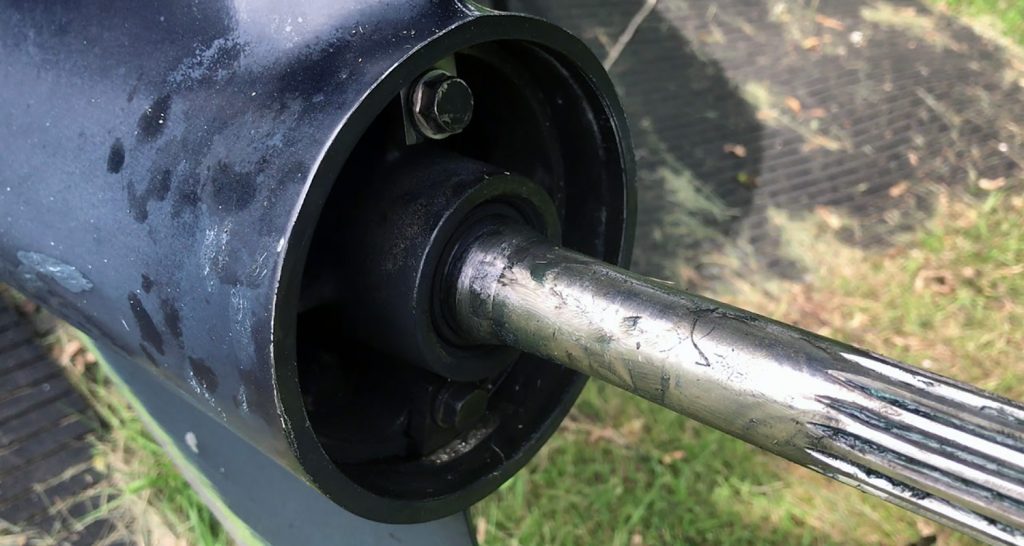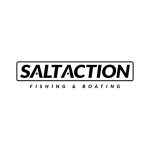The propeller shaft is a critical component of a boat's propulsion system, responsible for transferring power from the engine to the propeller. If the propeller shaft becomes bent or damaged, it can significantly affect the performance and maneuverability of the boat.
This article will explore how to diagnose a bent propeller shaft, common symptoms associated with this issue, and the implications of propeller damage on a boat's performance and potential future problems.
Diagnosing a Bent Propeller Shaft:
Identifying a bent propeller shaft requires a systematic approach and a keen eye for potential indicators. Here are some steps to help diagnose this issue.
Visual Inspection:
Visually inspect the propeller shaft for any visible signs of bending or misalignment. Look for irregularities, such as visible warping, unusual gaps, or any signs of impact or collision.
Shaft Runout Measurement:
Using a dial indicator or a runout gauge, measure the runout of the propeller shaft. Runout refers to the amount of deviation from a true rotational axis. If the runout exceeds the manufacturer's specifications, it suggests a bent propeller shaft.
Shaft Alignment:
Misalignment between the engine and the propeller shaft can cause bending. Check for proper alignment by examining the coupling between the engine and the shaft, ensuring they are parallel and properly connected.
Performance Evaluation:
Observe the boat's performance during operation. If there are vibrations, unusual noises, or reduced propulsion efficiency, it could indicate a bent propeller shaft. Note any changes in handling, speed, or fuel consumption.
Symptoms of a Bent Propeller Shaft:
A slightly bent propeller shaft may not be immediately noticeable, but over time, it can lead to various symptoms affecting the boat's performance. Some common indications of a bent propeller shaft include vibrations and noise, poor performance, and increased fuel consumption.
Vibration and Noise:
A bent shaft can cause vibrations throughout the boat, especially at higher speeds. These vibrations may be felt in the steering wheel, cockpit, or even in the entire hull. Unusual noises, such as clunking or knocking sounds, may also be present.
Poor Performance:
A bent propeller shaft disrupts the balance and rotation of the propeller, resulting in decreased propulsion efficiency. The boat may experience reduced speed, difficulty reaching higher RPMs, or struggle to plane properly.
Increased Fuel Consumption:
Due to the compromised efficiency, a boat with a bent propeller shaft may require more fuel to achieve the desired speed or maintain normal operation. Increased fuel consumption can lead to higher operating costs and reduced range.
Implications of Propeller Damage:
Propeller damage, whether due to a bent shaft or other causes, can have significant implications for the boat's performance and future problems.
Reduced Efficiency and Performance:
A damaged propeller, including a bent shaft, impedes the smooth flow of water, reducing propulsion efficiency. This leads to suboptimal performance, slower speeds, and diminished maneuverability, impacting the overall boating experience.
Increased Mechanical Stress:
A bent propeller shaft exerts additional stress on various components of the propulsion system, including the transmission, engine mounts, and bearings. Over time, this stress can cause premature wear and tear, potentially resulting in costly repairs.
Potential Shaft Failure:
If left unaddressed, a severely bent or damaged propeller shaft can eventually fail. A failed propeller shaft may cause the propeller to detach from the boat or become severely misaligned, leading to a loss of propulsion and potentially dangerous situations.
Final Thoughts
Diagnosing a bent propeller shaft requires careful inspection, measurement, and evaluation of the boat's performance. Prompt detection and repair are crucial to maintaining optimal performance, reducing the risk of further damage, and ensuring safe boating. Regular maintenance and periodic inspections can help prevent propeller damage, promoting smoother operation and extending the lifespan of the boat's propulsion system.


